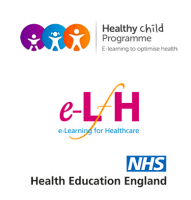Social Development in Adolescence for Paediatrics professionals



This session will review the reciprocal impact of changes in social development in adolescence. The session will also consider what impact these developmental changes have on self management of long-term illness during adolescence.
Learning Objectives
By the end of this session you will be able to:
- Identify the social and behavioural changes that are most likely to occur during early, middle and late developmental stages
- Describe how these changes impact on relationships within the family
- Describe how these changes impact on relationships within peers
- Consider how long-term illness impacts on successful achievement of social and behavioural developmental tasks
Young people live in complex social networks. Their social development takes place in relation to their peers and families, as well as society and other communities. For young people with a long-term illness, medical teams are a significant part of their network. Understanding where young people are in relation to these changes has important implications on how to communicate with them and their ability to manage complex long-term illness regimens.
This session will review the reciprocal impact of changes in social and behavioural development in adolescence. The session will also consider what impact these developmental changes have on the self management of a long-term illness during adolescence.
Before commencing this session you should complete the following AH session:
- 02_001 Healthy Development in Adolescence (401-0004)
Dr Deborah Christie is a Consultant Clinical Psychologist, Honorary Reader and Clinical Lead for Paediatric and Adolescent Psychological Services at University College London Hospitals NHS Foundation Trust. She works with young people searching for ways to live with chronic illness including diabetes, obesity, arthritis, chronic fatigue and chronic pain syndromes. Current research interests include neuropsychological outcomes in children and adolescent survivors of meningitis, quality of life measures in chronic illness and the development of effective multidisciplinary interventions for diabetes and obesity in children and adolescents.

- Fantastic Twos - Common Behavioural and Emotional ...
- Posted By eIntegrity Healthcare e-Learning
- Posted Date: 2025-01-22
- Location:Online
- This session provides an overview of the theory behind the emotional development of the pre-school c...
- Communication Impairments Part 4: Autistic Spectru...
- Posted By eIntegrity Healthcare e-Learning
- Posted Date: 2025-01-22
- Location:Online
- This session is the last of four that looks at different speech, language and communication impairme...
- Acne Course for Paediatrics professionals
- Posted By eIntegrity Healthcare e-Learning
- Posted Date: 2025-01-22
- Location:Online
- This session is intended to give the reader a brief overview of the epidemiology, pathophysiology, c...
- Assessment and Diagnosis of CFS/ME in Adolescence ...
- Posted By eIntegrity Healthcare e-Learning
- Posted Date: 2025-01-22
- Location:Online
- This session introduces the learner to chronic fatigue syndrome/myalgic encephalomyelitis (CFS/ME) a...
- Managing CFS/ME in Adolescence for Paediatrics pro...
- Posted By eIntegrity Healthcare e-Learning
- Posted Date: 2025-01-22
- Location:Online
- This session introduces the learner to the management of chronic fatigue syndrome/myalgic encephalom...








